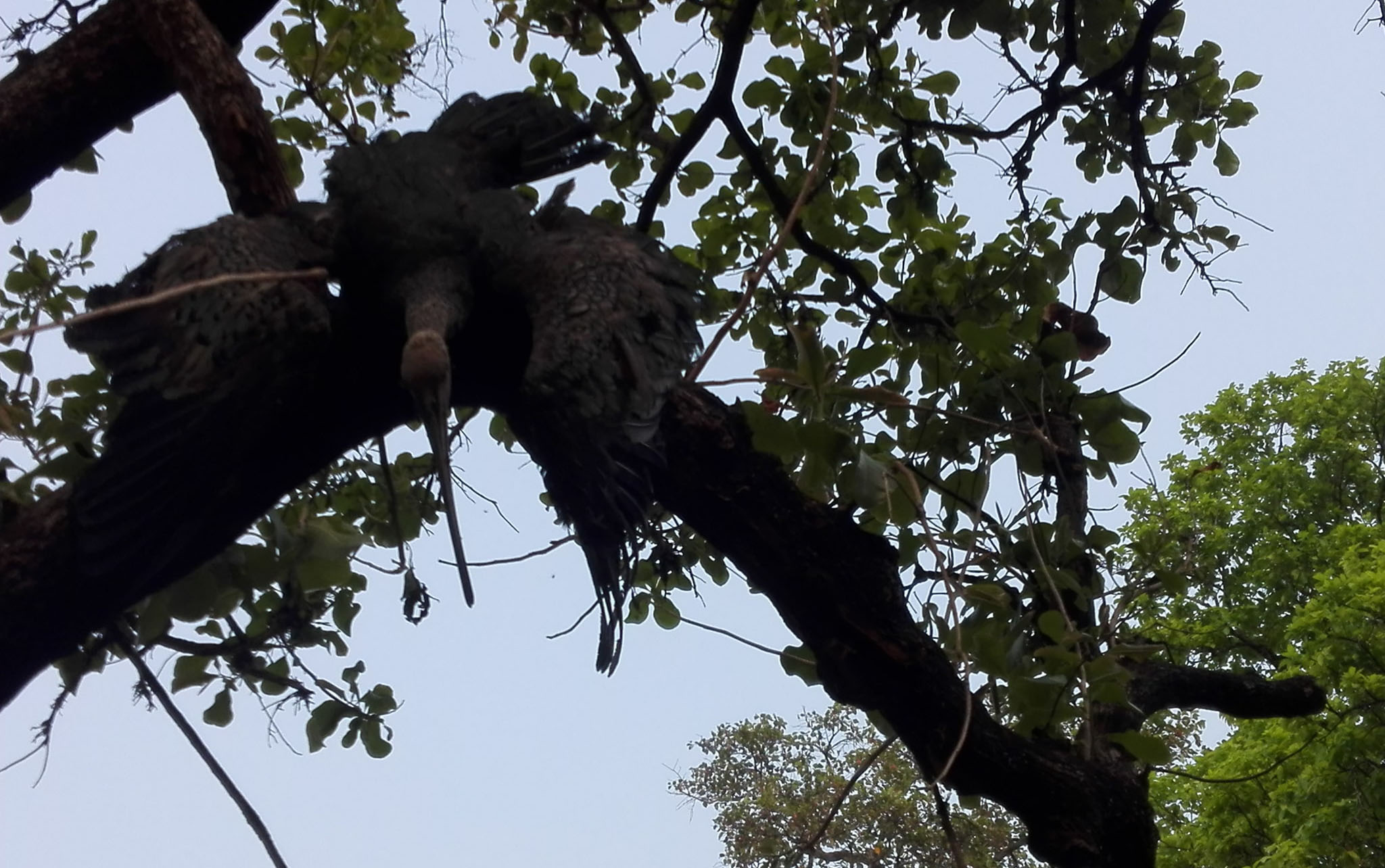 The Ministry of Environment (MoE) and Wildlife Conservation Society (WCS) extremely regret the loss of a Banteng and two Giant Ibis which were killed by offenders earlier this week. These sad two incidences happened at the same time in Kulen Promtep Wildlife Sanctuary (KPWS) and Cheb Wildlife Sanctuary (CWS) of Preah Vihear province.
The Ministry of Environment (MoE) and Wildlife Conservation Society (WCS) extremely regret the loss of a Banteng and two Giant Ibis which were killed by offenders earlier this week. These sad two incidences happened at the same time in Kulen Promtep Wildlife Sanctuary (KPWS) and Cheb Wildlife Sanctuary (CWS) of Preah Vihear province.
The carcass of Banteng was found by the community patrol team while they were patrolling the forest on March 17, 2021 in Sambo village, Srayang commune of Kulean district in KPWS. The offenders left behind the skeleton including the skull and feet after burning the remains. The carcasses of the two Giant Ibis were found dead on a tree by the committee of Prey Andoung Dang Phlet Community in Dang Phlet village, Chheb 2 commune of Chheb district. The two Giant Ibis had been caught in snares at a nearby pond and in their attempt to escape had become entangled in the snare wire and ultimately died a slow and painful death.
The Giant Ibis Thaumatibis gigantea is Cambodia’s National Bird. It is classified as Critically Endangered globally, and is a protected species in Cambodia. Although it was formerly widespread in Southeast Asia, it is now only found in Cambodia where there are thought to be less than 300 individuals remaining.
Banteng are listed as a globally Endangered species on the IUCN Red List of Threatened Species. Its population has dramatically decreased over the last few decades, mostly due to habitat loss and hunting for meat and horns. Based on data from the IUCN Red List assessment for this species, a global population estimate for Banteng is around 4,000 individuals. No official estimate is available for Banteng in Cambodia, but based on recent monitoring data from several sites and organizations, it is likely that the total population is currently less than 1,500.
The MoE and WCS would like to appeal to the public for their active participation in the protection and conservation of these and other rare wildlife for the next generation. Specifically, all offenders, please stop hunting and snaring activities immediately because they are illegal. The MoE would like to request that the local authorities at all levels and relevant partners continue educating, raising awareness and strengthening law enforcement in order to protect and conserve the forest and wildlife, especially rare species such as these.
>